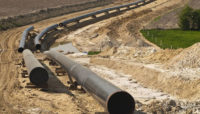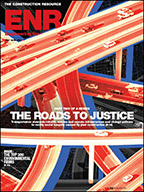Citing COVID-19 concerns, the U.S. Environmental Protection Agency on March 26 announced changes in its rules—exempting from financial penalty companies that can show they are unable to fulfill environmental compliance because of pandemic impacts and complications emerging in the process.
The policy is retroactive to March 13, and an end date has not been set.
“The consequences of the pandemic may affect facility operations and the availability of key staff and contractors and the ability of laboratories to timely analyze samples and provide results,” wrote Susan Parker Bodine, assistant administrator for EPA’s Office of Enforcement and Compliance Assurance, in a memorandum, explaining the agency’s reasoning. “As a result, there may be constraints on the ability of a facility or laboratory to carry out certain activities required by our federal environmental permits, regulations, and statutes.”
Federal Superfund cleanup sites and related activity, as well as public water systems, are not covered under this policy.
Facilities in the latter category are expected “to continue normal operations and maintenance as well as required sampling to ensure the safety of our drinking water supplies,” states the memo, with laboratories accordingly expected to “continue to provide timely analysis of samples and results.”
EPA expects facilities to self-report if their emissions or discharges cause “an acute risk or an imminent threat to human health or the environment.”
Environmental groups have sharply criticized the policy. “This is an open license to pollute. Plain and simple,” said Gina McCarthy, president and CEO of the Natural Resources Defense Council and former EPA Administrator under President Barack Obama, in a statement. “We can all appreciate the need for additional caution and flexibility in a time of crisis, but this brazen directive is an abdication of the EPA’s responsibility to protect our health.”
When asked about alternatives EPA could have considered, Ed Chen, NRDC federal communications director, told ENR that the agency should “stay true to its mission: protect public health–especially now.”
In a joint letter to EPA's Bodine, dozens of environmentalists questioned the need for the agency to apply the policy universally, rather than respond to individual requests for exemption. They also asked why compliance poses particular coronavirus-related difficulties: “It is not clear why refineries, chemical plants and other facilities that continue to operate and keep their employees on the production line will no longer have the staff or time they need to comply with environmental laws.”
In a follow-up to its memorandum, the EPA press office pushed back on criticism, writing that the change "is not a license to pollute...EPA developed the temporary policy to allow EPA to prioritize its resources to respond to acute risks and imminent threats, rather than making up front case-by-case determinations regarding routine monitoring and reporting.”
Prior to the announcement, industry groups, including the American Petroleum Institute, had advocated for changes to compliance requirements.
Frank J. Macchiarola, its senior vice president of policy, economics and regulatory affairs, asked for “nonessential compliance discretion” in a letter to EPA Administrator Andrew Wheeler.
“Temporary relief from these requirements will allow operators and suppliers to prioritize their resources on those critical activities to enable the continued production of fuels and products,” wrote Mark Green, an API spokesman, in a blog post on its website following the announcement.





Post a comment to this article
Report Abusive Comment